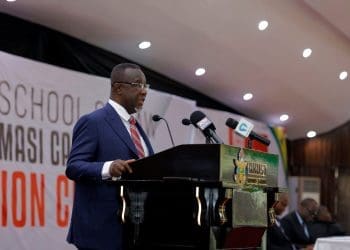The High Court in Kumasi has dismissed a legal action filed by 500 former employees of AngloGold Ashanti (Ghana) Limited, who were seeking compensation following their retrenchment over a decade ago.
The case, titled Peter Eshun & 499 Others v. AngloGold Ashanti (Ghana) Ltd (Suit No. C12/6323), was struck out in its entirety on Monday, July 7, 2025, on the grounds of the statute of limitations.
Presiding over the matter was Court of Appeal Justice Dr. Adusei Poku, sitting as an additional High Court Judge.
With trademark clarity and legal precision, he upheld the defendant’s objection that the plaintiffs’ claims—arising from retrenchment that occurred in 2013 and 2014—were brought far beyond the six-year legal window allowed under Ghana’s limitation laws.
“Litigation ought to see an end,” the judge remarked, aligning with the long-standing legal maxim interest rei publicae ut sit finis litium, meaning it is in the public interest that litigation should come to an end.
Statute of limitations blocks decade-old claims
The defense, led by renowned legal practitioner O.K. Osafo Buabeng of Osewuo Chambers and assisted by Appiahene Osei Akoto Esq., argued forcefully that the plaintiffs’ claims were statute-barred.
They pointed to the fact that under Ghanaian law, any action founded on contract—such as claims for retrenchment entitlements—must be filed within six years from the date of cause.
The court agreed, concluding that the suit, filed in 2024, had arrived years too late to be legally viable.
In effect, the judge ruled that the retrenched workers were legally barred from resurrecting a claim tied to events more than a decade in the past.
Court rejects plaintiffs’ fraud exception argument
The plaintiffs, represented by the respected Nana Obiri Boahen and his junior counsel Asamoah Baffour Okyere Esq., attempted to invoke the legal exception of fraud to sidestep the statute of limitation.
They argued that acts of fraud by AngloGold Ashanti had delayed or concealed facts relevant to the retrenchment process.
However, the court was not persuaded.
His Lordship noted that the allegations of fraud were not supported by the evidence submitted.
He ruled that the plaintiffs had failed to demonstrate any material deception or fraudulent conduct by the defendant company that would warrant setting aside the statutory limitation period.
A further blow to the plaintiffs’ case was the attempt to relitigate matters previously heard by the National Labour Commission. The court was unequivocal in reminding the parties that decisions rendered by the Labour Commission are subject to appeal only at the Court of Appeal, not retrial at the High Court.
Quoting from page 15 of his judgment, Justice Poku stated: “The statutory route to challenging a decision, order or direction of the Labour Commission is by way of an appeal to the Court of Appeal. In the hierarchies of the labour dispute resolution fora, the principle that there must be an end to litigation… must be applied rigorously.”
He stressed that any party aggrieved by the outcome at the Labour Commission had the option to appeal—but not to initiate a fresh trial at a different forum.
Finality in law, finality in labour disputes
With this ruling, the Kumasi High Court has not only brought closure to a long-standing dispute between the retrenched workers and the Obuasi-based mining giant but also reaffirmed key legal principles regarding finality in labour dispute resolution and the binding nature of statutory timelines.
While the decision represents a major legal victory for AngloGold Ashanti, it also serves as a cautionary tale for workers and legal practitioners alike about the importance of acting within prescribed legal timeframes and following proper appellate procedures.
The full text of the judgment is expected to be made available to the parties and published in the Ghana Law Reports in due course.













